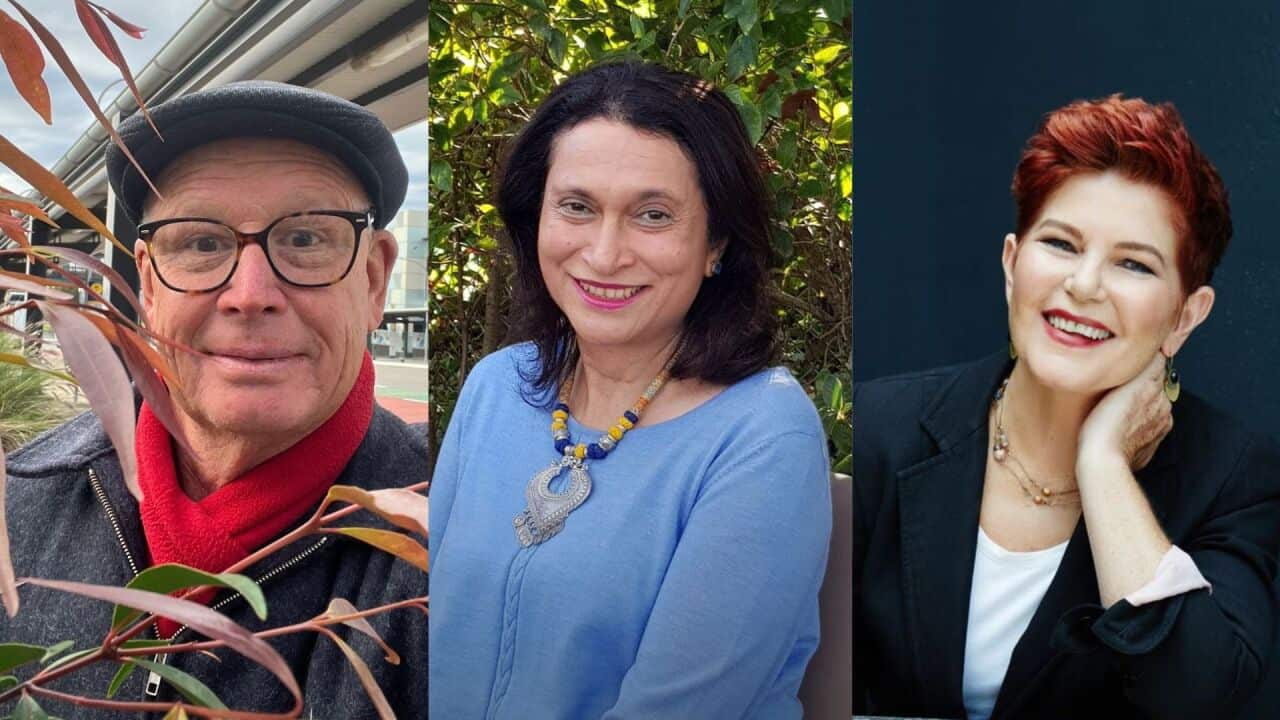What drives us to leave a legacy, and what happens when we inherit a legacy we don't want? Watch the Insight episode Leaving a Legacy on
Stream free On Demand

Leaving A Legacy
episode • Insight • Current Affairs • 52m
episode • Insight • Current Affairs • 52m
What is legacy? I'm in my mid-60s and never had children — and thus have no grandchildren. My direct genetic line will end with me. This wasn't my choice.
I battle with a mix of emotions when I watch friends delight in seeing themselves in their children and grandchildren. I share their joy in witnessing their genes being passed down through generations, clearly giving them meaning and purpose.
The joy is mixed with grief. Knowing I won't ever experience that joy of seeing myself in my children or grandchildren makes me sad.
The idea of leaving a legacy raises many questions for me. Knowing my genetic line will end when I'm no longer here, it's led me to think about how else I can pass on something of value.
I never met my grandparents, so also don't have the experience of being on the receiving end of such a connection.
There's so much I wish I could pass on from the legacy of my parents and sister. My Scottish mother's life journey was one of emigration, like mine. Her work as a piano teacher led to music becoming a central part of my life.
She did so much for her community — conducting choirs, starting a local arts festival, and helping children at an orphanage stage annual variety shows.
When I use her vintage mixing bowl, I remember learning from her in the kitchen as a child.
It's a tradition for me to bake Christmas cake each year using her handwritten recipe, on pages from her little pink notebook.
I am grateful to my father for teaching me to live without prejudice. I also learned from him all I know about gardening and the naming of plants. I always think of what he taught me when I'm working in the garden.
My late sister’s battles with mental illness shaped my life, and I treasure photos of happier times we shared as young children.
When my life ends, that knowledge will go, and none of those mementos will hold any meaning.
Despite trying for many years to have a child, it wasn't to be. Overcoming the grief of childlessness was tough.
Now in my later years, I face the fact that I can never be blessed with grandchildren.
Infertility imposes significant pressures on relationships, and I feel for my first husband that he will never be a father or a grandfather.
Cherishing my relationships
In my second marriage, I have been blessed to be part of a new family, including stepchildren and step-grandchildren.
These relationships have brought me great pleasure and deep attachment which has given me a taste of what it may have been like to be a mother and grandmother to my own offspring.
Paradoxically, that happiness has highlighted my feelings of sadness and caused my grief to resurface. Being fully involved with my stepdaughter’s recent wedding was one of the best experiences of my life, for which I will be forever grateful.

Cathy says being fully involved with her stepdaughter's recent wedding was one of the best experiences of her life. Source: Supplied
I also take pleasure in being a second mum to my beautiful young goddaughter, who is in her early 20s and now living in Paris.
I have two nephews; one in London, where I spend cherished moments with him and his two gorgeous little blonde girls when I visit.
I also recently returned from Dallas, where I reconnected with my other nephew and witnessed the brilliant parenting of their teenage son and daughter by him and his wife.
A family wedding in Scotland last year meant time with a much-loved cousin and her children.
Finding other ways to make a difference
The fact that my few distant relatives are scattered around the world is sad. I have no blood relatives in Australia.
And the happiness all these connections bring me will always be offset by sadness at not having any children or grandchildren.
Nevertheless, I try to stay in the present and live life to the full. If I can make a difference to others, that's a welcome bonus. It matters to me to help and give what I can.
I was a general practitioner for many years before becoming a psychotherapist. I tried my best in those years to make a difference and be a positive influence in my patients' lives.
Doctors' mental health and well-being are a concern to me, and I've contributed where I could. I've always balanced my medical career with playing the flute — I find music is the perfect antidote to stress.
I discovered a way to combine these two passions by founding the NSW Doctors Orchestra more than 20 years ago. I take pleasure in knowing that my time and efforts have given many hundreds of medical students and doctors opportunities to nurture their creative health.

Cathy, a flautist, founded the NSW Doctors Orchestra more than 20 years ago. Source: Supplied
Together we have raised hundreds of thousands of dollars for a variety of charities in the arts and healthcare. It pleases me to think of this orchestra meeting and playing well into the future.
Resonating with others
Many take grandparenthood for granted. After growing weary of incorrect assumptions and hurt by thoughtless comments, I felt the need to express my mixed emotions.
I started writing about the unacknowledged grief of not having grandchildren.
The response to my words has been overwhelming. Both men and women in a similar situation to me have told me they felt heard and understood by what I’ve written. Talking about this absence as a form of grief has also resonated with people who are parents but will not be having grandchildren.
Then there are those who can never see their grandchildren. And finally, those who do have biological children and grandchildren, who've told me what I've expressed has given them a deeper and more thoughtful understanding of what it’s like for their friends and family members who don't have children or grandchildren.
The fact that what I have shared publicly has resonated so strongly with so many reflects how overlooked this issue has been. There is a profound lack of awareness and understanding of what it's like to be a non-grandparent. I hope I've been able to help change that.
Being at the end of my genetic line is simply a fact of life. It doesn't matter whether my name is remembered. We can all make a difference by handing down something of value. Ultimately, I have a legacy to leave after all.
For more stories, head to Insightful, a new podcast series from SBS hosted by Insight host Kumi Taguchi. From sex and relationships to health, wealth, and grief, Insightful offers deeper dives into the lives and first-person stories of former guests from the acclaimed TV show, Insight.
LISTEN

Insightful












